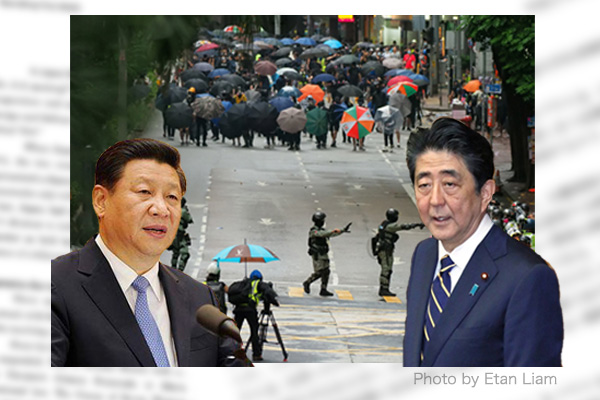On November 24, pro-democracy candidates won a landslide victory in Hong Kong’s district council elections, indicating strongly that the Chinese Communist Party may lose power if any fair election is held on the mainland. CCP will step up the suppression of free speech and the blocking of universal suffrage.
On November 27, U.S. President Donald Trump signed into law the Hong Kong Human Rights and Democracy Act, which requires the administration to annually report to the Congress on “civil liberties” and “autonomy” in Hong Kong and the president to adopt a strategy to protect U.S. citizens if the president determines that Hong Kong proposed or enacted legislation that puts U.S. citizens at risk of extradition to mainland China. The act, expected to check the CCP regime, greatly encouraged Hong Kongers. Japan’s parliament should enact this kind of legislation in a supra-partisan manner.
Human rights abuses in Hong Kong and Xinjiang
Almost simultaneously, multiple documents confirming the CCP’s terrible repression of Uighurs in China’s western region of Xinjiang were leaked. In the international law arena, an argument growing in recent years says that if a state fails to take responsibility for protecting its residents and induces a crisis coming as a “shock to the conscience of mankind,” the international community’s humanitarian intervention would be justified. However, the United Nations cannot be expected to conduct such intervention.
The U.N. Human Rights Council, which consists of 47 countries elected in the General Assembly, has an unwritten rule to refrain from inquiring into human rights problems involving council members, transforming itself into a de facto club of human rights abusers. When a country attempts to take up a human rights problem at the U.N. Security Council, China takes advantage of its veto to argue that human rights problems are outside the jurisdiction of the Security Council and should be brought to the Human Rights Council, where China usually takes leadership in shelving such a problem if it is unfavorable for China. Consequently, the international community has no choice but to depend on the coalition of the willing to make pressure on Beijing over human rights repression, intellectual property theft and illegal intrusions into foreign territories.
Nevertheless, the Japanese government is planning to invite the CCP leader Xi Jinping to visit Japan as state guest. Most of lawmakers have shown little concern about the plan. Hong Kongers and Uighurs may see the Japanese appeasing attitude as a betrayal.
Japan’s reputation falling on Xi’s state visit
There is no problem with Prime Minister Shinzo Abe having business-like talks with Xi. It is a task of a politician to negotiate and communicate appropriately with a counterpart even if the counterpart is a fascist. If the cabinet decides to invite Xi as state guest, however, the imperial family including the emperor and the empress embodying Japan’s tradition and culture would be required to entertain the Chinese leader in a heartfelt manner. The imperial family should not be exploited for any appeasement diplomacy. Once, Japan cooperated with Hitler to form a Tripartite Pact between Japan, Germany and Italy, leading its international reputation to plunge. Such event should not be repeated.
U.S. President Trump has not been enthusiastic about the Hong Kong Human Rights and Democracy Act. He reluctantly accepted overwhelming support for the act in the Congress. However, the president has taken leadership in exerting economic pressure on the CCP regime. As a whole, the United States has steadily increased pressure on the regime. Behind the confrontational attitude is the confidence that its national power is stronger than China’s.
Japan must also enhance its military and energy self-sufficiency to enhance its core national power. As the legislature of the liberal democracy, the National Diet should enact a law that would limit state guests to heads of states implementing universal suffrage.
Yoichi Shimada is a senior fellow and Planning Committee member, Japan Institute for National Fundamentals, and a professor at Fukui Prefectural University. He follows U.S. politics and diplomacy.


